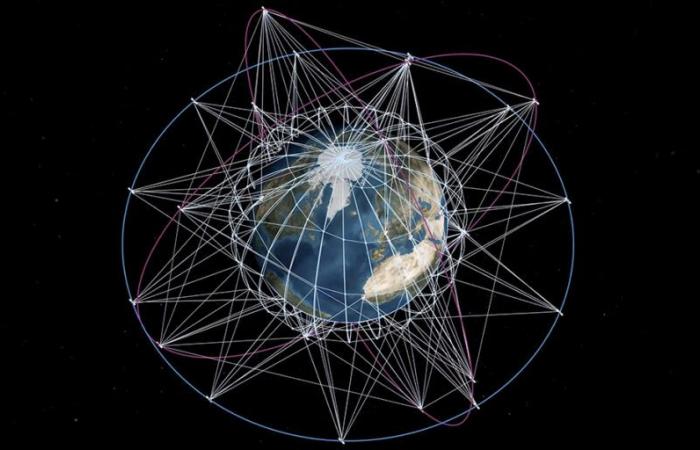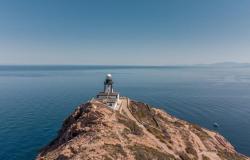Loading player
In recent years, billionaire Elon Musk has put over 7 thousand satellites into orbit around the Earth to offer Internet from space to private individuals and governments, including for military purposes. The service is available in Europe, but the European Commission would like to do without it for government and security communications: for this reason it wants to send a few hundred satellites into orbit over which it can have full control, without depending on Musk’s companies and his sometimes questionable of doing business.
At the beginning of the week the Commission announced that it had signed the contract for the assignment of the management of IRIS2 – the name of the satellite project – to some of the most important European space companies, for an investment estimated at 6.5 billion euros, approximately two thirds of which is financed by European institutions. The rest of the money will come from investments by private individuals involved in the SpaceRISE consortium.
Eutelsat, Hispasat and SES are involved in the initiative, three important companies responsible for numerous satellite networks, and some large companies specialized in the production of satellites and the management of telecommunications networks such as: Thales Alenia Space and Telespazio, which have a strong presence in Italy, and Airbus Defense, Deutsche Telekom, Orange and Hisdesat. The companies will be responsible for launching and managing IRIS2 for the next 12 years with the aim of having the satellite constellation in operation by 2030.
As the name suggests, a satellite constellation is a set of satellites that is usually placed in low orbit (below 2 thousand kilometers away from Earth) and which, thanks to the high number of components, manages to cover a good part of the planet with its own signal. The satellites, smaller and less complex than traditional telecommunications ones, keep in contact with the control centers and repeaters on the ground, and with the antennas of those who use the service for example to access the Internet where there is no cellular signal or the cables for normal connections do not arrive. In some configurations they can also communicate with each other in space, improving the coverage and speed of the connection.
The largest satellite constellation built so far in orbit is SpaceX’s Starlink, the US space company led by Elon Musk that periodically transports hundreds of satellites into orbit to strengthen its network. Starlink offers Internet access to private individuals in much of the world, but in the last two years it has been talked about mainly for its role in the war in Ukraine, where it was used by the Ukrainian army in areas where mobile and fixed networks were destroyed by Russian attacks.
In addition to Starlink, SpaceX has for some time had a sort of parallel project called Starshield, dedicated to the development and management of satellite constellations for military and national security purposes for the United States and its allies. The company has never provided much information about Starshield due to secrecy constraints imposed by the US government. In this context, at the end of 2022 the Council of the European Union, where the governments of the 27 member states of the European Union are represented, announced the launch of IRIS2 and the choice to entrust its implementation to an international consortium, led by some of the main European space companies.
IRIS2 plans to send 290 satellites into orbit over the next few years, several orders of magnitude smaller than the Starlink constellation and others under design and development. The satellites used will however be sufficient to offer the necessary coverage both for security and military purposes and to offer high-speed connections to private individuals, in areas where there is no mobile coverage or optical fiber does not reach. The satellites will be placed in both low and medium orbit, therefore above 2 thousand kilometers altitude.
The satellites of IRIS2 they will be transported into orbit by European rockets, such as the Ariane 6 launch system currently in the final stages of testing. Given the quantity of launches necessary, it is not however excluded that the consortium decides to entrust some of them to SpaceX, which this year alone has carried out more than one hundred launches towards Earth orbit. In this case, SpaceX would still only have the task of transporting the load, without involvement in the management of the constellation.
According to several IRIS observers2 it could help further stimulate the space economy in Europe, which continues to expand, albeit at a different pace than that of the United States. The most important problem remains the limited possibilities of access to orbit compared to the United States, which in addition to SpaceX will soon also be able to count on Blue Origin, Jeff Bezos’ space company which is about to test a new launch system for large loads to and from beyond Earth’s orbit.






